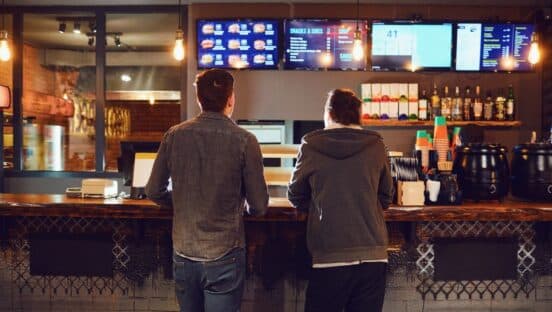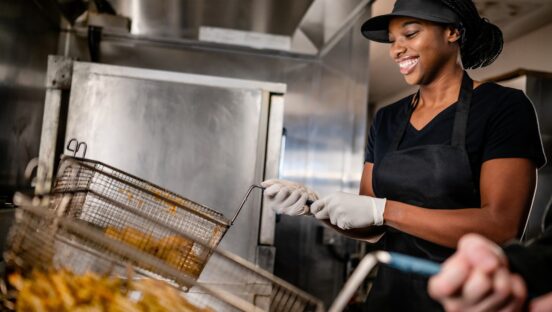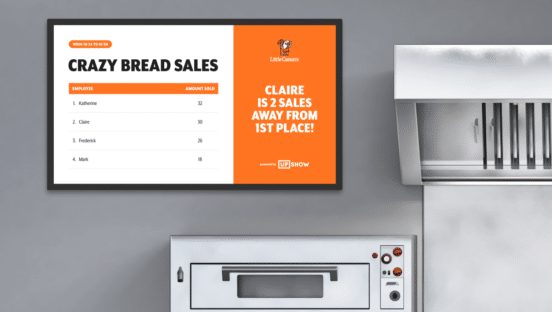It has increasingly become a talking point: is a recession the next major crisis coming for restaurants? According to Revenue Management Solutions, foot traffic was down 4.1 percent year-over-year in May 2022, seeming to indicate that continued inflation was beginning to curb the average American’s enthusiasm for dining out.
While it’s often said quick-service restaurants are recession-proof, the industry still suffers when consumers are spending less. And when factoring in ever-increasing food and labor costs, even the slightest dip in revenue could create major headaches—or worse—for operators.
Lucas Liu, CEO of INFI, hates picturing what will happen to restaurant brands ill-equipped for each and every possibility. After all, if the pandemic taught the industry anything, it’s that being agile enough to combat challenges on multiple fronts is a key to success.
“Restaurants need to be prepared for changes in consumer behavior,” Liu says. “They should also be reactive to cost increases given the current inflationary environment. Past recessions have shown that the quick-service restaurant industry does hold up better than some other parts of the market, but that even well-positioned restaurants need to react to maintain performance.”
In an effort to truly become “recession-proof,” many restaurant brands are turning to technology that helps lower costs while driving revenue. Take, for example, the INFI Self-Ordering Kiosk, which helps automate the laborious order-taking process. The kiosks also offer upsells tailored to a guest’s preferences, based on order history and what’s currently in a basket. These features have helped brands of various sizes reduce front-of-house labor costs by up to 90 percent, increase rush-hour capacity by 20 percent, and increase average ticket size by up to 15 percent.
Someone who has seen the benefits of the INFI Self-Ordering Kiosk first hand is David Choi, chef-owner of Seoul Taco, a Mexican-Korean fast-casual fusion brand with nine locations split between the Chicago and St. Louis areas. Seoul Taco rolled out INFI’s self-ordering kiosks prior to the pandemic and immediately enjoyed operational advantages—advantages that will help his brand even more if and when it finds itself navigating a recession.
“Right now, it’s tough to hire full-time staff,” Choi says. “INFI has been a fantastic tool for us that’s helped with the labor shortage. It’s also sped up our ordering process and addressed a lot of the issues we’ve had with labor costs and rising food costs.”
One of the things Choi loves most about INFI’s kiosks is the fact that they are easy to use and require little explanation. A guest can walk in off the street and intuit exactly how to navigate the menu. And whether the guest is a new customer or a returning one, INFI reports that its interface can increase customer retention by up to 50 percent, which Choi believes speaks to the simplicity of the solution.
“This is a chaotic industry,” Choi says. “There’s a new thing thrown at us every day—you’re constantly improvising when you run a restaurant. Anything that can help simplify our processes is a huge asset to us. And INFI does that in a big way.”
Choi also mentions how seamlessly INFI’s kiosks integrated with his existing POS system, and how the rollout went off without a hitch. He was immediately pleased with the results, as were his employees—he contrasts this with other tech rollouts that seem to create more trouble than they’re worth. “Being a multi-unit owner, I feel like a lot of times there are headaches and pain when you implement new technology,” Choi says. “INFI was the total opposite. It was such a relief when they and their team came in and made it such a seamless process.”
Reviews like this are music to Liu’s ears. He says his company takes pride in “wow”-ing operators and making their lives easier—his team is made up of former restaurant owners who understand restaurant pain points, and are dedicated to helping operators through even the most challenging operating conditions.
“We hope that quick-service sales continue to remain strong,” Liu says. “But no matter what the economy does, our tools will help operators drive sales and remain profitable.”
For more on INFI’s kiosks, visit the company’s website.













